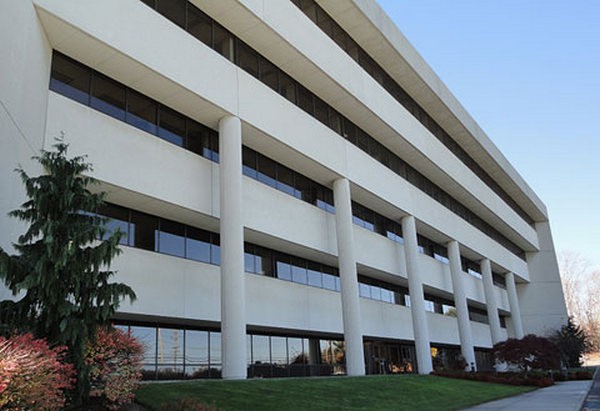Sober living
Alcohol’s Impact on Eye Health
NỘI DUNG TRANG
The eyes work harder to compensate for their reduced efficiency, leading to strain. If you find yourself squinting or closing your eyes frequently due to discomfort, it’s a sign that alcohol is affecting your ocular health. Managing your alcohol intake can help alleviate these symptoms and protect your eyes from further strain. Long-term abuse of alcohol can also lead to toxic amblyopia or vision loss. Both short-term and long-term use of alcohol affects the optic nerve and the relationship between the brain and the eye. However, the damage is near permanent at this point, and symptoms will progress with continued alcohol consumption.
Take the First Step Towards a Healthier Life
- Dry eye symptoms can persist even after stopping drinking, and alcohol withdrawal may cause issues with tear production.
- At Pathways Recovery Center, our healthcare professionals are experienced in diagnosing and addressing these serious health issues.
- Even if your symptoms are mild, they can worsen and cause other vision problems if not addressed.
Methanol reacts with normal biological eye processes, leading to permanent damage of vital nerves that send images to the brain. Even with treatment, over 30% of individuals will still have some permanent damage. Fetal alcohol syndrome (FAS) is a condition babies develop when pregnant mothers abuse alcohol. FAS increases the chances of unborn babies developing mental and physical defects such as eye diseases. At 0.15% to 0.19% BAC, motor functions, balance, and vision are impaired. At 0.20% and above, individuals are severely intoxicated and may experience loss of consciousness.
Possible short-term effects on eyes
- Ophthalmologists consider alcohol consumption a modifiable risk factor, meaning individuals can prevent alcohol vision decline by limiting or stopping consumption.
- In the case of damage to the eye from alcohol abuse, it is best to be wise in preventing it.
- According to Medical Daily, drinking in moderation should not cause any long-term problems to eyesight.
- Heavy drinkers who smoke and have poor dietary lifestyles are also likely to develop alcoholic amblyopia, a rare case of bilateral vision loss.
- The effects may be short term, such as blurred or double vision, or they may be long term and potentially permanent.
- At Pathways Recovery Center, we address these cravings through a combination of medical intervention, psychological support, and lifestyle modifications.
No reliable sourcing indicates how many people experience vision issues due to alcohol. For example, many people have occult eye muscle imbalances, but the sober brain can preserve crisp, single vision. Once the person has consumed a little alcohol, the brain relaxes that control and vision problems become apparent.
Eyes and Alcohol: The Effects of Drinking
In this article, we’ll explore the impact alcohol has on your eyes, discussing both short-term inconveniences and potential long-term damage. If you or someone you know is struggling with alcohol use, our Pennsylvania rehab center offers resources and support to help you start your journey to recovery. Let’s take a closer look at how alcohol can affect your vision and eye health. There are many reasons to stop drinking, and damage to vision—whether short- or long-term—is one of them. You may have had the experience of having too much to drink one night, maybe at a party or celebration; things begin to get blurry as the alcohol affects your brain and vision. This usually goes away after a short time and is temporary, along with a hangover and headache.
Vascular Changes in the Eyes
Medical detox safely manages the physical symptoms of withdrawal under medical supervision, ensuring that your first steps towards sobriety are as safe as possible. Excessive alcohol consumption can speed up the onset of macular degeneration, which deteriorates the central part of the retina. This condition severely affects central vision, crucial for reading, driving, and facial recognition. It poses a significant risk, especially for older adults, impacting essential daily activities and overall quality of life. Alcohol can make your eyes more sensitive to light, leading to discomfort in brightly lit environments or on sunny days.
If you already suffer from astigmatism, farsightedness, presbyopia, aging eyes, and/or diabetic eye problems, your computer vision symptoms may worsen. This can even be the case if you already have prescription contacts or glasses. Many regular eyeglasses and contact lenses are not designed to deflect the problems caused by computer screens. We will set up a plan and treatment options to blurry vision hangover sustain and improve your vision.
Managing Alcohol Cravings During Recovery
In extreme cases, some slip into a coma and even die due to respiratory failure. Consuming alcohol in moderation, or having two or fewer drinks per day for men and one drink or fewer per day for women, is unlikely to cause long-term eye issues. The vitamin is essential for proper eye health, playing an important role in the quality and quantity of tear production. Without enough of it, your tear production decreases, and the quality of your tears goes down.











